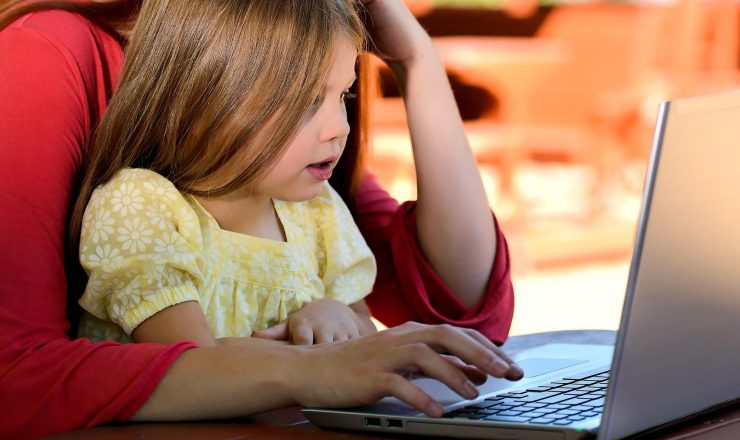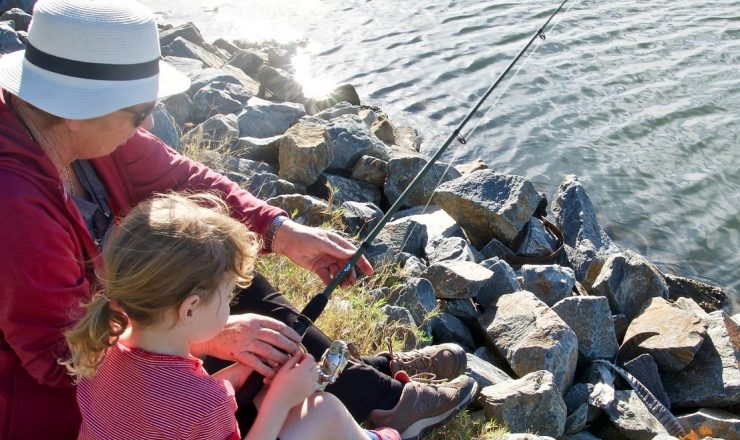Depending on your age, your memories of play will vary. Some will recall games of kick the can or red rover. Others, myself included, can recall racing down sidewalks on our big wheels and green machines. In my neighborhood, you could easily create a game of hide and seek or capture the flag by rounding up a few friends. Our imaginative games were limited only by curfew times when our parents called us in. In my childhood, unstructured free play filled the hours between dinner and bedtime every weekday night. Most weekends brought more of the same, aside from the occasional team sport or church activity.
As a parent, I can see the value of this type of play for my own children. Some of the most creative games and storytelling occurs with my children when they are forced to turn off the television, put away their devices, and play. When given time and play space, exploring and creative problem solving become the agenda. It is evident that through play, children can gain mastery over their environment, express themselves, and learn new ways to interact with the world. Free play encourages social and emotional intelligence and builds empathy and self awareness. Children must work together to decide what game to play and what agreeable rules there are. For younger children, play builds gross and fine motor skills.
In fact, the benefits of free play were recently affirmed by the American Academy of Pediatrics (AAP). Specifically, the AAP reported that free and unstructured play is essential for helping children to manage stress and to reach social, emotional, and cognitive developmental milestones. Furthermore, play has been indicated in brain development. Sergio Pellis, a researcher at the University of Lethbridge in Alberta, Canada recently affirmed that, “The experience of play changes the connections of the neurons at the front end of your brain.” Furthermore, he maintains that “Without play experience, those neurons aren’t changed.”
It is these changes in the prefrontal cortex during childhood that help wire the brain’s executive control center which is primarily responsible for regulating emotions, making plans, and solving problems.
As the parent of “overscheduled children”, I recognize all too clearly that unstructured play time is a rare treasure. For many children in our area, the non school time hours include club or recreation sports, academic support programs such as tutoring, and a host of additional extracurricular activities such as performing arts, visual arts, and various social clubs. In addition, our children’s free play time is impacted by increasingly competitive college admissions and state education policies that reduce physical education in schools.
So how can we increase the opportunities for our children to have access to this important commodity?
- Emphasize the benefits of “true toys” (think toys of your own childhood) such as blocks and dolls. These type of toys encourage children to fully use their imagination.
- Support an appropriately challenging academic schedule dependant on the abilities and needs of the child vs competitive community standards or the need to gain college admissions.
- Recognize that every child does not need to excel in multiple areas to be considered successful or prepared to compete in the world.
- Re-evaluate the number of extracurricular activities. There is no right or wrong number, but consider the amount of free time your child has in a given week and how this is impacted by structured activities.
- Let your child go a little out of your comfort zone. Allowing children to take calculated risk in natural environments may improve their judgement and flexible thinking.
- Practice letting your child be bored. Instead of handing your bored child a screen, encourage them to use their imagination to find something to do.
Free and unstructured play is defined as a set of activities that children create on their own without adult guidance. It breeds flexibility and creativity which allow children to adapt to their ever changing environments. And, when left to their own devices, children will take initiative and create activities and stories in the world around them. As parents, we are instrumental in creating the space and time for this to occur.
Shelley Coleman MA, LPC-S
Shelley Coleman is a Licensed Professional Counselor and Supervisor in Lakeway. She provides play therapy, child and adolescent counseling, family therapy, and parent education. www.shelleybcolemanlpc.com








